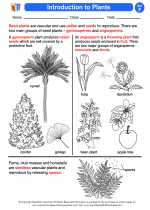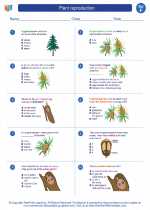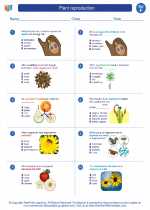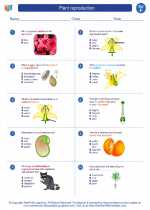Marine Science
Marine science is the study of the ocean and its ecosystems, including marine life, geology, and physical processes. It encompasses a wide range of disciplines, including biology, chemistry, physics, geology, and environmental science. Understanding the marine environment is important for ecological conservation, resource management, and climate research.
Key Concepts in Marine Science
- Oceanography: This field focuses on the physical and geological aspects of the ocean, including currents, waves, tides, and the ocean floor.
- Marine Biology: Marine biologists study the diverse forms of life in the ocean, including fish, mammals, invertebrates, and microorganisms. They also explore ecological interactions and adaptations to the marine environment.
- Marine Ecology: This branch of science examines the relationships between organisms and their marine habitats, including food webs, population dynamics, and biodiversity.
- Marine Conservation: Scientists and conservationists work to protect and preserve marine ecosystems, addressing issues such as overfishing, pollution, and climate change.
- Oceanography: This field focuses on the physical and geological aspects of the ocean, including currents, waves, tides, and the ocean floor.
- Marine Technology: Engineers and researchers develop tools and instruments for exploring the ocean, such as underwater vehicles, remote sensing devices, and monitoring equipment.
Study Guide
To study marine science effectively, it's important to understand the interconnected nature of the ocean and its various components. Here are some key topics to focus on:
- Learn about the physical properties of seawater, including temperature, salinity, and density, and how they affect ocean circulation and climate patterns.
- Explore the diverse marine ecosystems, from coral reefs and kelp forests to deep-sea hydrothermal vents, and understand the unique adaptations of marine organisms.
- Examine the human impact on the ocean, including pollution, overfishing, habitat destruction, and the implications of climate change for marine life.
- Understand the role of the ocean in the Earth's systems, including its influence on weather patterns, nutrient cycling, and the carbon cycle.
- Study the history of marine exploration and the development of technologies for oceanographic research, from early expeditions to modern-day robotic submersibles.
By delving into these topics, you'll gain a comprehensive understanding of marine science and its relevance to global environmental issues.
Good luck with your studies!
.◂Science Worksheets and Study Guides Sixth Grade. Plant reproduction
Study Guide Plant reproduction
Plant reproduction  Activity Lesson
Activity Lesson Introduction to Plants
Introduction to Plants  Worksheet/Answer key
Worksheet/Answer key Plant reproduction
Plant reproduction  Worksheet/Answer key
Worksheet/Answer key Plant reproduction
Plant reproduction  Worksheet/Answer key
Worksheet/Answer key Plant reproduction
Plant reproduction  Vocabulary/Answer key
Vocabulary/Answer key Plant reproduction
Plant reproduction 

 Activity Lesson
Activity Lesson
 Worksheet/Answer key
Worksheet/Answer key
 Worksheet/Answer key
Worksheet/Answer key
 Worksheet/Answer key
Worksheet/Answer key
 Vocabulary/Answer key
Vocabulary/Answer key

The resources above cover the following skills:
LIFE SCIENCE
From Molecules to Organisms: Structures and Processes
Students who demonstrate understanding can:
Use argument based on empirical evidence and scientific reasoning to support an explanation for how characteristic animal behaviors and specialized plant structures affect the probability of successful reproduction of animals and plants respectively.